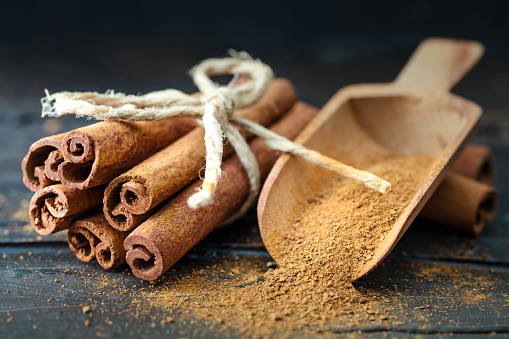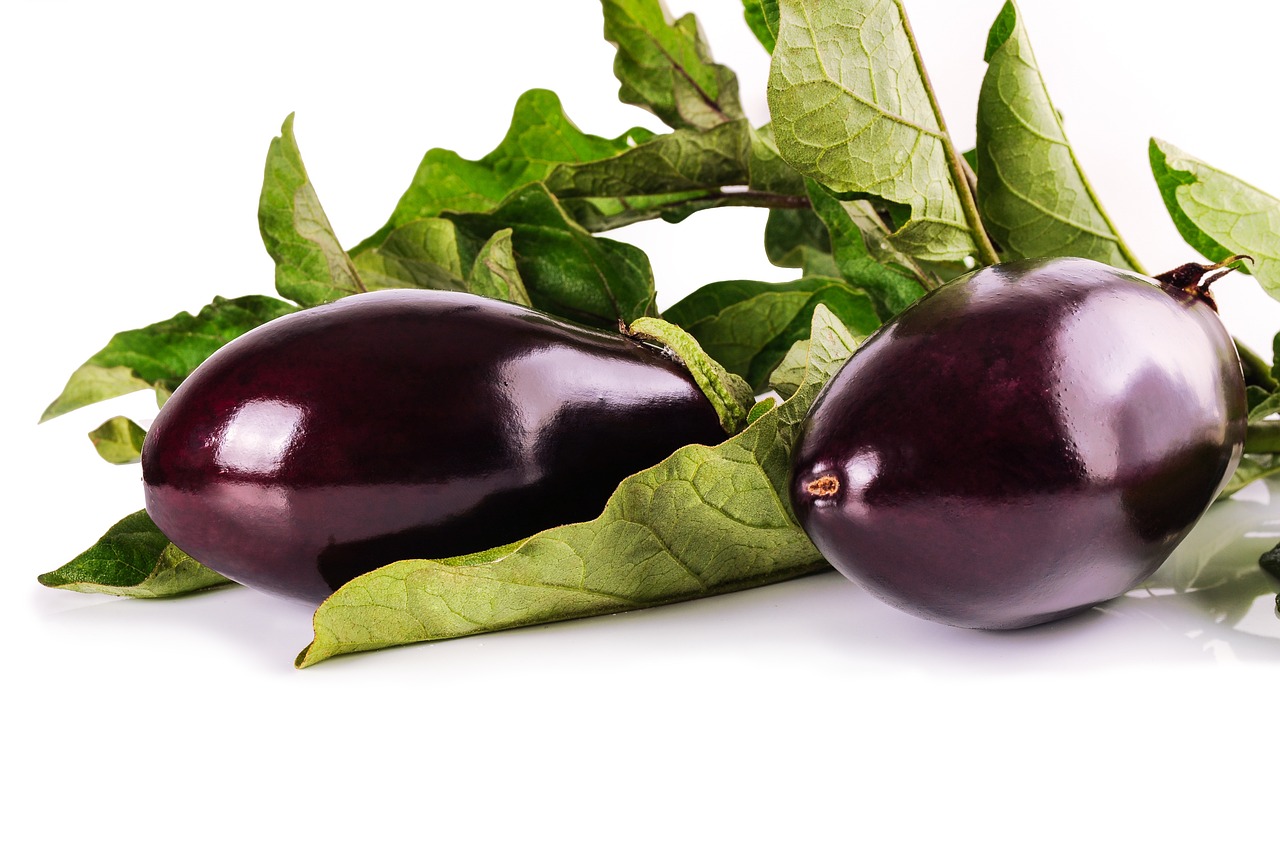Nutrition
The benefits and harms of drinking cinnamon

cinnamon?
Cinnamon grows in abundance in Sri Lanka, Indonesia, India, and other Asian countries. People there use cinnamon for many different medicinal purposes. The great thing about cinnamon is that there are so many ways to use it.
More recent research has shown that this delicious spice not only employs flavor to different dishes but also has many treatments and superior health and beauty benefits.
Before we get started let’s talk about some important information that you should know. There are two different types of cinnamon: Cinnamon Verum, more commonly known as Ceylon cinnamon and is the most common in the world.
Cinnamon aromaticum is also called cassia or Chinese cinnamon and is less expensive than Ceylon cinnamon. You are now wondering what is the difference between these two types of cinnamon? Don’t worry, we will answer this question for you.
Cassia or Chinese cinnamon contains coumarin, a chemical compound that has been linked with liver damage. This makes Ceylon cinnamon much less coumarin than Chinese cinnamon.
If you want the easiest way to consume cinnamon and enjoy its nutrients, we will advise you to resort to drinking cinnamon because it fights several health problems such as diabetes, cold, flu, diarrhea, nausea, bloating, indigestion, and many more.
Nutrition in Cinnamon:
One teaspoon of ground cinnamon, weighing 2.6 grams, contains:
Energy: 6 calories (kcal)
Fat: 0.3 g
Carbs: 2.1 grams
Protein: 0.1 g
Calcium: 26 milligrams (mg)
Iron: 0.2 mg
Magnesium: 2 mg
Phosphorous: 2 mg
Potassium: 11 mg
Vitamin C: 0.1 mg
Vitamin A: 8 IU
Learn about the benefits of drinking cinnamon:
Benefits of drinking cinnamon for diabetes:
Cinnamon helps improve blood sugar status, including blood glucose levels, among people with type 2 diabetes, which should significantly improve your ability to regulate blood sugar.
Indeed, cinnamon has been previously mentioned as a potential alternative to insulin for people with type 2 diabetes due to its bioactive ingredient with “insulin-like” effects.
Other research has shown that consuming cinnamon tea (about 2 grams per day for 12 weeks) improves blood pressure.
Benefits of drinking cinnamon for weight loss:
The best results for weight loss will always be a healthy diet and daily exercise, but cinnamon can also be useful for slimming by increasing the body’s ability to burn fat and reduce blood sugar, which is essential in this case.
When your metabolism level is high, you will be able to store healthy carbohydrates for energy without converting them to fat.
It is easy to prepare cinnamon slimming tea by mixing half a teaspoon of ground cinnamon with 1 teaspoon of honey in a cup of hot water and leaving it for 10 minutes before drinking it on an empty stomach.
One advantage of using this tea for weight loss is that you just drink two cups a day: one in the morning and one in the afternoon. You will notice good results very quickly.
Benefits of drinking cinnamon before bed for depression:
Benefits of drinking cinnamon before bed for depression:
Recent research shows that certain types of bacteria in the digestive system make some people more susceptible to depression. Simply drinking a cup of cinnamon tea daily before bed kills bacteria and helps prevent depression.
Benefits of drinking cinnamon for sex:
Cinnamon has been used as an aphrodisiac for centuries and to stimulate sexual desire. That is why the easiest way to enjoy this benefit of cinnamon is to use it in the form of tea once a day and the result will be a significant increase in sexual function.
Benefits of drinking cinnamon for cholesterol:
There is still much debate about the effects of cinnamon on cholesterol, or more specifically, bad cholesterol.
A study on the effects of cinnamon on triglycerides indicated a 23% to 30% reduction in triglycerides and up to a 27% reduction in LDL cholesterol.
Those without diabetes can also benefit from cinnamon’s effect on cholesterol.
Research suggests that drinking cinnamon tea may have a positive effect on lowering blood glucose, reducing triglycerides, improving blood glucose, and improving both good and bad cholesterol.
Benefits of drinking cinnamon for the menstrual cycle:
Women who suffer from menstrual irregularities and the cramps that come with it can benefit from the fiber, manganese, and calcium present in cinnamon. As well as its main anti-inflammatory and antispasmodic properties that relieve pain associated with menstruation. One study used cinnamon tea to combat premenstrual pain and found that the intensity of this pain was significantly reduced.
How to use :
Put a cinnamon stick in a bowl and pour boiling water.
Allow this mixture to cool, then remove the cinnamon stick.
Now you are ready to drink this tea and you can sweeten it with sugar or honey.
Benefits of drinking cinnamon for the heart:
Cinnamon is a great way to help prevent heart disease and maintain cardiovascular health. It is a natural anti-inflammatory, rich in fiber and calcium that removes toxins from the body.
Moreover, lowering high cholesterol helps prevent heart disease in the future. You can add a small cup of cinnamon tea to your diet to protect heart health.
Benefits of drinking cinnamon for influenza:
Add a teaspoon of cinnamon to warm drinks to reduce the effectsCinnamon is good for its antimicrobial properties, which can help your immune system fight a cold or flu.
It can help address the growth of bacteria and fungi. By adding a teaspoon of cinnamon to hot water, this hot drink will not help you cure a cold but will help you feel comfortable.
Benefits of drinking cinnamon for memory:
Cinnamon improves our brain function dramatically. They also reduce the level of insulin in the body which is again linked to improved memory power. Thus, if you want to improve your memory, try drinking cinnamon tea regularly. This is one of the best ways to preserve sharp memory.
How to store cinnamon:
Cinnamon can last for years when stored, but the strength of the aroma and taste will diminish after only a few months.
It is important to store cinnamon properly so that you can get the most out of your purchase and give lasting freshness to the product.
Keep the cinnamon or cinnamon sticks in a glass container with an airtight lid.
Store cinnamon in a cool, dry place.
The cinnamon will keep for six months, while the tightly stored cinnamon sticks will last up to a year.
Keep the cinnamon out of direct sunlight or heat sources, and be sure to seal the container tightly when not in use.
Disadvantages of drinking cinnamon:
Cinnamon usually does not cause any side effects.
Consuming very high amounts of cinnamon may cause some problems, especially for people with liver problems.
Cinnamon may lower blood sugar.
But consuming a small amount will not cause this problem for most people.
Due to the lack of evidence of its safety, cinnamon is not recommended as a treatment for children or for women who are pregnant or breastfeeding.
The most common allergic reactions to cinnamon, taken orally or topically, include the following:
goosebumps
Congestion is usually associated with the presence of cold
itchy eyes
nausea
red eyes
The skin is flushed or red
Swelling and inflammation of the skin
itchy skin
difficulty swallowing
Runny nose
vomiting
Diarrhea
skin reactions
These are the most common reactions to cinnamon products, such as oils, creams, cinnamon bark, cinnamon spice, and cinnamon supplements.
Food recipes
Eggplant Nutrition & Cooking

Nutritional benefits of eggplant and methods of preparation
Eggplant, also known as aubergine, is a versatile and nutritious vegetable that belongs to the nightshade family. It is rich in various vitamins, minerals, and antioxidants, making it a healthy addition to your diet. Here are some of the nutritional benefits of eggplant:
- Low in calories: Eggplant is a low-calorie vegetable, making it suitable for those trying to manage their weight.
- High in fiber: Fiber aids in digestion and helps maintain a healthy digestive system. Eggplant contains both soluble and insoluble fiber.
- Rich in antioxidants: Eggplants are a good source of antioxidants, such as nasunin, which help protect the body’s cells from damage caused by free radicals.
- Good source of vitamins: Eggplants contain vitamins such as vitamin C, vitamin K, vitamin B6, and thiamin.
- Mineral content: Eggplants provide important minerals like potassium, manganese, magnesium, and copper.
- Potential blood sugar regulation: Some studies suggest that eggplant may help improve blood sugar levels due to certain compounds found in the vegetable.
Now, let’s explore some methods of preparing eggplant:
- Baked Eggplant: Slice the eggplant into rounds or lengthwise strips, brush them with olive oil, season with salt and pepper, and bake in the oven until tender. This method is a healthier alternative to frying.
- Eggplant Parmesan: Bread slices of eggplant with breadcrumbs and parmesan cheese, then layer them with marinara sauce and mozzarella cheese. Bake until the cheese is melted and bubbly.
- Grilled Eggplant: Cut the eggplant into thick slices, brush them with olive oil, and grill them on a barbecue or stovetop grill pan until they have grill marks and are tender.
- Eggplant Stir-Fry: Cut the eggplant into small cubes and stir-fry with your favorite vegetables and protein source in a wok or skillet.
- Baba Ganoush: Roast or grill the eggplant until the skin is charred and the flesh is soft. Scoop out the flesh, and blend it with tahini, garlic, lemon juice, and salt to make a delicious Middle Eastern dip.
- Ratatouille: This is a traditional French vegetable stew that includes eggplant, tomatoes, zucchini, bell peppers, onions, and various herbs. It can be cooked on the stovetop or in the oven.

Remember to store eggplant in a cool, dry place, and use it within a few days to ensure freshness and retain its nutritional value.
Food recipes
Cooling Summer Juices

The most important juices that cool the human body in the summer and methods of preparation
During the summer, it’s important to stay hydrated and keep the body cool. Juices can be a refreshing way to achieve that. Here are some of the most important juices that can help cool the human body in the summer, along with methods of preparation:

- Watermelon Juice:
- Method: Cut a ripe watermelon into small pieces and remove the seeds. Blend the watermelon pieces in a blender until smooth. Strain the juice to remove any pulp or solids.
- Benefits: Watermelon is high in water content and helps in hydrating the body. It also contains electrolytes and vitamins, which can help in regulating body temperature.
- Cucumber and Mint Juice:
- Method: Peel and chop cucumber into pieces. Add the cucumber pieces and a handful of fresh mint leaves to a blender. Blend until smooth. Strain the mixture and collect the juice.
- Benefits: Cucumber has a high water content and can keep the body hydrated. Mint provides a cooling effect and aids digestion.
- Aloe Vera Juice:
- Method: Cut open an aloe vera leaf and scoop out the gel using a spoon. Blend the gel with water until smooth. Strain the mixture to obtain the juice.
- Benefits: Aloe vera juice has a cooling effect on the body and can help soothe inflammation and sunburn. It also aids digestion and promotes hydration.
- Lemonade:
- Method: Squeeze the juice of fresh lemons into a pitcher. Add water and sweeten with honey or sugar according to taste. Stir well to mix.
- Benefits: Lemonade is a classic summer drink that provides hydration and helps in cooling the body. Lemons are also rich in vitamin C, which can boost immunity.
- Coconut Water:
- Method: Crack open a fresh coconut and collect the water from the center using a straw or pour it into a glass.
- Benefits: Coconut water is a natural electrolyte-rich drink that helps in replenishing fluids and minerals in the body. It is hydrating and can help regulate body temperature.

Remember to use fresh and ripe fruits for juicing to ensure the best taste and nutritional benefits. Adjust the sweetness and water content according to your preference. Stay cool and hydrated during the summer!
Nutrition
Nutritional benefits of pumpkin and methods of preparation.

Nutritional benefits of pumpkin
Pumpkins offer a wide range of impressive health benefits due to their rich nutritional profile. Here are some key health benefits of pumpkins:
- Nutrient-rich: Pumpkins are packed with essential nutrients, including vitamins A, C, and E, potassium, magnesium, and dietary fiber. These nutrients support overall health and play important roles in various bodily functions.
- Eye health: Pumpkins are particularly known for their high vitamin A content, primarily in the form of beta-carotene. Beta-carotene is converted into vitamin A in the body, which is essential for good vision, particularly in low-light conditions. Consuming pumpkin can help promote eye health and reduce the risk of age-related macular degeneration.
- Heart health: The fiber, potassium, and vitamin C content in pumpkins contribute to heart health. Fiber helps reduce cholesterol levels, while potassium supports healthy blood pressure. Vitamin C acts as an antioxidant and helps protect the heart from oxidative stress.
- Immune system support: Pumpkins are a great source of vitamin C, which plays a crucial role in supporting the immune system. A strong immune system is important for fighting off infections and illnesses.
- Weight management: Pumpkins are low in calories and high in fiber, making them a great addition to a weight management plan. The fiber content promotes feelings of fullness, which can help curb appetite and reduce calorie intake.
- Digestive health: The high fiber content in pumpkins supports healthy digestion and can help prevent constipation. Additionally, the water content in pumpkins can contribute to overall hydration, which is important for maintaining a healthy digestive system.
- Skin health: The antioxidants, vitamins, and minerals found in pumpkins can help promote healthy skin. Vitamin C aids in collagen production, which contributes to skin elasticity and reduces the appearance of wrinkles. The beta-carotene in pumpkins can also help protect the skin from damage caused by the sun’s harmful UV rays.
- Mood and sleep regulation: Pumpkins contain the amino acid tryptophan, which is involved in the production of serotonin—a neurotransmitter that regulates mood and promotes good sleep. Consuming pumpkin may contribute to improved mood and sleep quality.
- Antioxidant properties: Pumpkins are rich in antioxidants, such as beta-carotene and vitamin C, which help protect the body against damage from free radicals. Antioxidants play a vital role in reducing the risk of chronic diseases, including certain types of cancer.
It’s important to note that these health benefits are based on consuming pumpkins as part of a balanced diet. Incorporating fresh or cooked pumpkin into your meals can be a delicious way to reap the benefits of this nutritious vegetable.

Pumpkin preparation methods
There are several popular methods for preparing pumpkins, depending on what you plan to make with them. Here are some common pumpkin preparation methods:
- Pumpkin Carving: Carving pumpkins is a popular activity during Halloween. To prepare a pumpkin for carving, start by cutting off the top of the pumpkin to create a lid. Scoop out the seeds and pulp from the inside, and then use carving tools to create your desired design on the outer shell. Be sure to handle sharp tools carefully.
- Pumpkin Puree: Pumpkin puree is a versatile ingredient used in various recipes such as pumpkin pie, soups, and baked goods. To make pumpkin puree, start by removing the stem and cutting the pumpkin in half. Scoop out the seeds and pulp from the center. Place the pumpkin halves, cut-side down, on a baking sheet lined with parchment paper. Bake them at 350°F (175°C) for about 45-60 minutes, or until the flesh is tender. Let the pumpkin cool, then scoop out the cooked flesh and blend it in a food processor or mash it with a fork until smooth.
- Roasted Pumpkin Seeds: Roasted pumpkin seeds make a delicious and nutritious snack. To prepare pumpkin seeds, scoop them out from the pumpkin, removing as much pulp as possible. Rinse the seeds under cold water to remove any remaining pulp. Pat them dry with a paper towel. Toss the seeds with a little bit of oil (such as olive oil) and your preferred seasonings, such as salt, garlic powder, or paprika. Spread the seeds in a single layer on a baking sheet and roast them at 325°F (160°C) for about 15-20 minutes, or until they are crispy and golden brown.
- Pumpkin Soup: Pumpkin soup is a comforting and flavorful dish. To prepare pumpkin soup, start by peeling and chopping the pumpkin into small cubes. In a large pot, sauté onions, garlic, and other desired vegetables in some butter or oil until they soften. Add the pumpkin cubes and enough vegetable or chicken broth to cover them. Simmer the mixture until the pumpkin is tender. Then, use an immersion blender or transfer the mixture to a blender to puree until smooth. Season the soup with salt, pepper, and other spices or herbs to taste.
- Baked Pumpkin Dishes: Pumpkins can be used in various baked dishes like pumpkin pie, bread, muffins, or cookies. To prepare these baked goods, you will typically need pumpkin puree as a base. Combine the pumpkin puree with other ingredients like flour, sugar, eggs, spices (such as cinnamon, nutmeg, and cloves), and baking powder/soda, according to your desired recipe. Mix the ingredients, pour the batter into the appropriate baking dish or muffin tins, and bake according to the recipe instructions.
Remember, when handling pumpkins, always be cautious of sharp tools and exercise caution to avoid injury. Enjoy your pumpkin preparations!
-

 Beauty4 years ago
Beauty4 years agoAll you need to know about the problem of excessive hair in women
-

 Nutrition4 years ago
Nutrition4 years agoBenefits of eating fruits daily
-

 Beauty3 years ago
Beauty3 years agoRecipes for hair lengthening – the fastest 8 recipes for hair lengthening and intensification
-

 Fitness4 years ago
Fitness4 years agoBack exercises and ways to apply them to get rid of problems
-

 Lifestyle4 years ago
Lifestyle4 years agoPromote a healthy lifestyle
-

 Beauty4 years ago
Beauty4 years agoBenefits of lavender – Here are more than 10 benefits of lavender for the body
-

 Business Services2 years ago
Business Services2 years agoOnline aeronautical engineering degree
-

 Beauty3 years ago
Beauty3 years agoBariatric Surgery in USA







